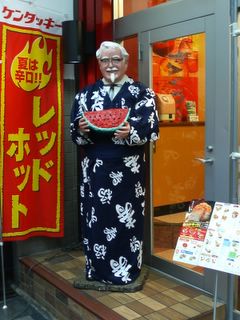This is interesting. A US study has found that heavily religious societies actually do significantly worse on social indicators such as murder rates, teen pregnancy/abortion, STDs and all those other vices that religion is supposed to wean us off with the carrot of Life Eternal. Formerly religious European societies (supposedly about to collapse as the nuclear family implodes in family courts) are glowingly irreligious and loving it. While one study does not a truth make, the internal coherence of European states and smug superiority of most mainland Europeans I meet lends anecdotal support. Within America itself, the religious/liberal divide is also strikingly similar to the European/American division, as Fuck The South eloquently notes. The Southern States and the Bible Belt are riddled with social woes above and beyond those of the heathens. While there's probably another correlation waiting to be drawn between poverty and moral ambiguity/crime, I think the nature of organised religion certainly plays a role. A common character in literature is that of the firebrand minister whose public vehemence hides a private battle against human urges. A good example is James Baldwin's Go Tell It on the Mountain, a thinly disguised autobiography. In real life, the character of the Christian hypocrite is common. The Nation writer Max Blumenthal recently savaged Christian guru Pat Robertson for his failures to live up to his espoused morality. Every company worth the multinational tag has fucked over Africans at one time or another, but Robertson does it while claiming to be holier than thou. Closer to home, New Zealand Christian Heritage Party leader Graham Capill repeatedly raped a young girl over the course of several years. While regularly raping the child, the morally flexible Capill managed to campaign strongly for a return to Christian morals in his post-God nation. Capill reportedly told friends his eight year old victim "looked older." Ah, the sickly-sweet stench of hypocrisy.
I've always felt that one reason people are attracted to Christianity is because true liberalism is boring. If you can really do whatever you like, with social stigma restricted to acts of non-consent (assault, rape), then where is the delicious thrill of forbidden sex? Perhaps this explains the rise in popularity of paedophilia, as the sexual boundaries of society move ever further from the prim Victorians. If a minister attracted to religion for the thrill of transgression once lusted after a roll in the hay with a female parishioner, what is there left once society jumped on board the rolling wave of sexual revolutions?
As an aside, I've always found it interesting that spiritual union with God as described in Christian booklets is apparently much more pleasurable than physical union with humans. But of course you can't use words like pleasure to describe heaven, because that sounds a bit sinful. Preferred words are "bliss" or "heavenly ecstasy", which is clearly much better than the European druglab version.










